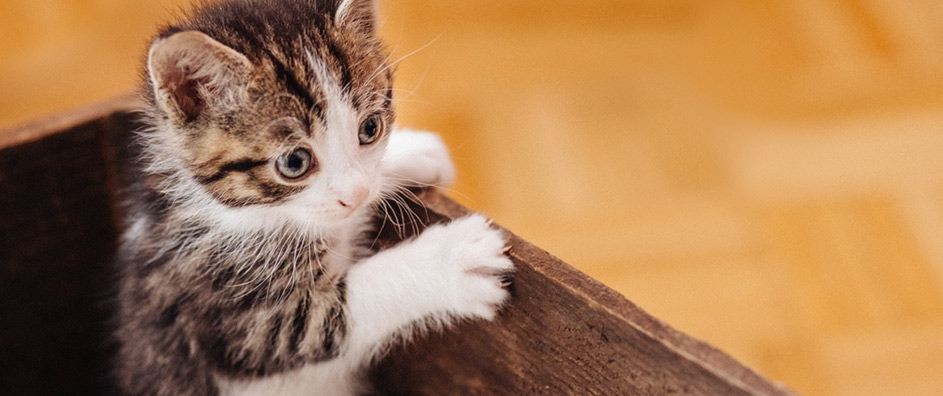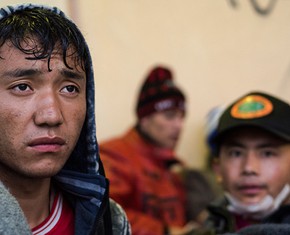The views expressed in our content reflect individual perspectives and do not represent the authoritative views of the Baha'i Faith.
I suppose what was noble to me and instructional about my father’s dying was that he left this life as he had lived it.
He let his actions reveal his character and spoke only when he had something worthwhile to say. He had never talked much about religion or philosophy. My father had a superb mind, and he had been a superb athlete in his youth. He had a chance at semi-pro baseball, but he always took the path that was safer and more secure, partly because he was a child of the depression, partly because he grew up on a farm where affluence was perceived as vain sacrilege, but mostly, I suspect, because he had this incredible sense of responsibility to the family.
I had always assumed he was simply insecure about disorder of any sort in his life. But what could be any more disordering than dying? And yet here he was, still being careful to floss his teeth, to look neat and “proper” in his pajamas and robe, assembling his family around him, and delivering his laconic farewell to us. I might have thought in such a circumstance he would have spoken about being afraid to die, or that he might reveal some obvious signals to us that he was terrified by this transition he was about to undertake.
There had at this point certainly been no words issued by the doctors to indicate he was “terminal” or near death’s door. But he knew it as he made this parting gesture to his little family. The next day the cancer invaded his brain and rendered him unable to think straight. Only he knew this, which is why his final command to his troops took us unawares.
For me, his death will always be among those that give me some clues about nobility as regards the art of dying. I suppose it was because of this nobility, and the fact that he never really got old or looked like what I would characterize as “elderly,” or “aged,” that at his funeral I was inconsolable, just a mess.
I have cried like that only a couple of times in my life, where all my secret stored-up unspoken emotions became unleashed. All the private pains and unarticulated injustices I had ever endured poured out indiscriminately during that day of ceaseless tears.
Strangely, the first time I experienced this same sort of purgation occurred because of a cat. Teaching at VPI in Blacksburg, Virginia, in 1964, I lived in a small apartment complex. One afternoon noisy children interrupted my paper grading. When I peered out the back window, I saw kids having a great time letting a stray kitten they had found tumble down the slide. They giggled as the frightened, malnourished creature tried desperately to grab onto the slick tin with his tiny claws, only to slide backwards again and again.
 I ran out, immediately rescued the kitten, and chastised the heartless children. I took the kitten in my hands, noticing that it still seemed bewildered and ill. I instantly recalled the Chinese proverb about being eternally responsible for any life you save. Paper grading had to be set aside. I wrapped the virtually weightless kitten in a towel and drove it to the veterinarian, careful to calm this abandoned and bewildered creature.
I ran out, immediately rescued the kitten, and chastised the heartless children. I took the kitten in my hands, noticing that it still seemed bewildered and ill. I instantly recalled the Chinese proverb about being eternally responsible for any life you save. Paper grading had to be set aside. I wrapped the virtually weightless kitten in a towel and drove it to the veterinarian, careful to calm this abandoned and bewildered creature.
The vet concluded that the kitten had a severe upper respiratory infection, but might survive with a hefty dose of penicillin, which I immediately agreed to underwrite. He cleaned up this tiny bit of life, gave it a shot, and placed it back in the towel for my care.
As I carried it to the car, I basked in the existential joy of the appreciative look in the eyes of this tiny being whose life I had saved. I drove home with the kitten in the towel by my side, a bit ennobled by my selfless act of salvation. More than that I felt untrammeled love, a love that I had almost forgotten about in what had become my routinized life. I glanced at the kitten frequently, and it glanced back.
About ten minutes into our return trip, it began to act a bit strange. Its head weaved back and forth. Then the kitten’s eyes seemed to dilate. It struggled desperately to stand, only to roll over on its back, shivering.
I stopped the car, pick up the frantic kitten, tried to cradle it, to reassure it, but within a minute it started to seize. I had no idea what to do. I just watched, hoping the seizure would stop. Finally, the kitten stopped trembling, but it felt limp. I felt for its heart, but there was no beating. I tried a few gentle compressions to see if I could get the tiny pump going again, but the rest was silence. It lay motionless, staring out at nothing.
It had been allergic to the penicillin, the vet informed me when I returned. The vet, in his kindness and appreciation of my humanity, agreed to “dispose” of the remains, and I was left with nothing but a small white towel, stained with tears and bits of grey and white kitten fur.
I got in the car emotionless. I drove mechanically until I began to feel emotion swell up from belly to throat as if a balloon were being inflated inside. Something about the complete and utter helplessness of this creature and my unwitting contribution to its death, combined with the unremitting image of the last expressions in its eyes as it looked to me, its savior, for an answer: “What’s happening to me! Something’s horribly wrong! I am dying and I don’t want to die!”
All of this somehow synthesized with a thousand unconscious pains that I had forgotten or had never adequately understood or commemorated. Who could possibly understand why this was such a tragedy, who could share what I was feeling? Why, amid all the tragedies engulfing the world, anyone should think the death of a stray kitten should merit the uncontrollable flood of sorrow that came rushing forth from my heaving sobs.
It was not vain of me to give way to this grief—I frankly had no way to prevent it. I cared not what I looked like trying to steer a car through tears and my chest heaving. No philosophical consolation or logical perspective could placate me. There was only emotion, only sorrow and grief in its purest form, even as I would, some seventeen years later, have the same sort of purgation at Dad’s funeral.
Praised be Thou, O Lord my God! Thou beholdest my perplexity, and the depth of mine anguish, and the agony of my soul, and the afflictions which beset me. By Thy glory! My heart crieth to Thee by reason of the things that have befallen my loved ones in Thy path, and mine eyes run down with tears for them who, in these days, have ascended unto Thee, who have cast the world behind their backs, and set their faces towards the shores of Thy transcendent mercy. – Baha’u’llah, Prayers and Meditations by Baha’u’llah, pp. 165-166.
You May Also Like
Comments

















I was sitting on the passenger side with kitty between us the entire time I read this heartwarming story. It was so vivid. Are we not told to show more kindness towards animals than to our fellow human beings, because animals cannot appeal to their government for justice? This is but one example of the love that you and your other wing Lucia possess for the most vulnerable of God's creatures. Thank you for reminding us.
― Richard Rohr, Immortal Diamond: The Search for Our True Self